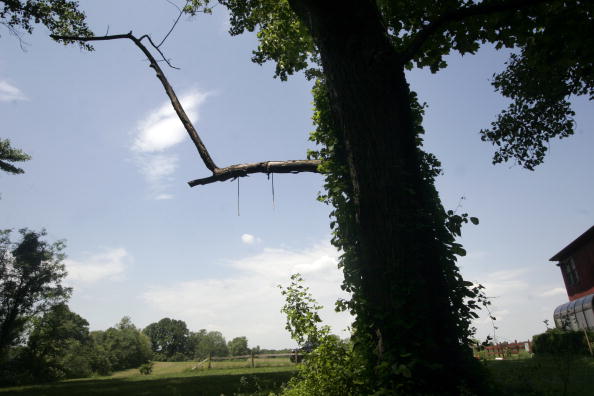Racist Lynching Commission Starts In Maryland: Here's What To Expect
What To Expect From The Nation’s First Statewide Commission On Racial Terror Lynchings

Source: The Washington Post / Getty
Over the past year, heightened racial tensions have caused many southern states have been forced to reckon with their problematic pasts, but one state was trying to rectify its racist history by putting its own past on trial and made history in the process.
On Thursday, Maryland became the first state in the country to create a statewide commission on racial terror lynchings after Governor Larry Hogan signed HB 307. According to a press release by the Equal Justice Initiative (EJI), the bill, which was passed unanimously, created the Maryland Lynching Truth and Reconciliation Commission (LTRC), which is aimed toward acknowledging that at least 40 African Americans were lynched in Maryland between 1854-1933 by white mobs intended to “terrorize Black communities and force them to silence and subservience to the ideology of white supremacy.”
The bill also acknowledges that there were government officials “at all levels” were complicit in the acts of terror against Black people by commissioning the lynchings, and or, covering for those involved.
“By publicly reckoning with the legacy of racial terrorism across the state, a communal process of atonement can guide the necessary development of collective healing,” EJI Director Bryan Stevenson said on Monday.
As there is no record of any parties being brought to justice for the lynchings and the victims’ families have not received compensation, let along an apology, the commission aims to remedy these injustices in several ways:
The LTRC will begin with having public hearings where Black families and communities can voice their experiences of racial terror lynchings. A similar meeting was held at Hartford Community College in Bel Air, Maryland last month. The event, which was hosted by the nonprofit Maryland Lynching Memorial Project, gave the descendants of lynching victims the opportunity to heal.
“It’s the psycho-social, spiritual, emotional and cultural trauma,” Baltimore resident Karla Wynn told the Sun in March. “We’re still carrying this trauma in our genes, and it’s affecting us at all levels.”
The next step the commission, which will include a staff member from the office of the Attorney General, will take is to investigate and document lynching cases with a focus on the involvement of government entities and relevant news media. They are expected to subpoena historians, civil rights officials and members of the public.
Lastly, starting on June 1, the commission will have three years to publish its findings in a report. The report aims to include recommendations for addressing the legacy of lynching in the name of “restorative justice.” The LTRC is expected to consider the erection of memorial plaques or signs at the sites of lynching. The Memorial Project has already begun collecting soil samples from the sites and has erected historical markers.
There was no word on whether other states will follow suit, but the LTRC is a landmark initiative that has the potential to create healing and shed light on the generational trauma caused by lynchings.
SEE ALSO:
















